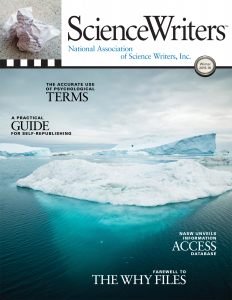By Julian Block
Most freelancers fear audits, but there are ways to lessen the trauma and expense of encounters with the Internal Revenue Service. Here are some reminders for NASW members on how to cope with audits.
Tax refunds don’t mean writers are able to forget about audits. When Form 1040 time rolls around, most taxpayers receive refunds. Just because you receive one doesn’t mean that you can forget about an examination. All it means is that the IRS’s ever-vigilant computers checked arithmetic and other basic items.
Cash your refund check but keep backup records handy. It’s tempting to shred tax records and receipts. Don’t! If you are audited and the agency disallows a deduction (for example, car expense), you are required to repay the refund plus nondeductible interest charges and penalties. You can opt for a hearing by the Tax Court, but that maneuver will get you exactly nowhere if you are unable to produce records that substantiate the write-off.When it is safe to deep-six records. Retain receipts, checks, and other documents that substantiate write-offs for business expenditures and other items. Also keep copies of returns. There’s a deadline (statute of limitations) for the IRS to undertake an audit. In most cases, the statute of limitations runs out three years after the filing due date: April 15, 2019, in the case of a Form 1040 for 2015 with a due date of April 15, 2016, for most persons. The tax code, however, allows the IRS to take six years to initiate an examination if it determines that you understated your income by 25 percent or more. Even worse, the agency has forever and a day if it establishes that you failed to file a 1040 or you filed a fraudulent one.
How IRS revenue agents respond when taxpayers lose their records or throw them out. As a general rule, revenue agents (the IRS’s name for auditors) require freelance writers to substantiate their deductions for business expenses like travel to NASW conferences and chapter meetings with “adequate records” — diaries, for instance.
Under IRS rules, there are some exceptions. Among other things, it waives the record-keeping requirements and accepts “reasonable reconstructions” when records were lost “due to circumstances beyond the taxpayer’s control, such as destruction by fire, flood, earthquake, or other casualty.” When is a loss beyond a person’s control? According to the agency’s administrative regulations, it depends on the particular circumstances.
Tax-savvy writers organize their records. The IRS wants to see proof of your expenses, whether, for example, it is questioning deductions for business expenses claimed on Schedule C or charitable contributions claimed on Schedule A. It allows write-offs for them only if they are documented.
What kinds of documents are acceptable? Receipts, bank records, letters from charities confirming your gifts, and even electronic records like emails can be sufficient. Failing to substantiate expenses is a surefire way to lose an audit with the IRS. Proper organization can save you time, money, and heartburn.
Back up deductions for business driving. Revenue agents (they come to your office) and office auditors (you go to them) are routinely curious about write-offs for car and other travel expenses.
Unless there are adequate records substantiating miles driven, they refuse to accept standard-rate deductions. The 2016 mileage allowance for business driving is 54 cents per mile, down from 2015’s allowance of 57.5 cents.
Auditors are more accommodating when you produce glove compartment diaries or other records that note why and how far you went and what you shelled out for parking and tolls. But expect them to scrutinize diary entries to verify they were made when the trips took place, not when filing deadlines loomed.
What if you neglected to keep auto logs showing how many miles you drove? Prove instead what mileage you unquestionably incurred.
Julian Block is an attorney and author based in Larchmont, N.Y. He has been cited as “a leading tax professional” (New York Times), “an accomplished writer on taxes” (Wall Street Journal) and “an authority on tax planning” (Financial Planning Magazine). Information about his books is at julianblocktaxexpert.com.
(NASW members can read the rest of the Winter 2015-16 ScienceWriters by logging into the members area.) Free sample issue. How to join NASW.

